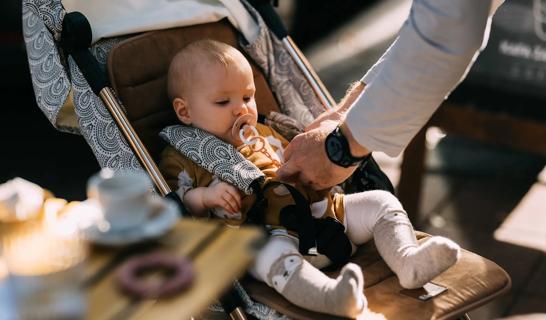Baby's First Smile and Laugh: Understanding Developmental Milestones
That first gummy grin is a moment every parent anticipates! But when do babies actually start smiling and laughing? It's more complex than you might think. Pediatrician Jacqueline Kaari, DO, helps us understand these precious milestones.
The Newborn Reflex Smile: What's Really Going On?
Those first smiles in the early weeks are often newborn reflexes. These aren't intentional expressions of joy just yet! These involuntary smiles are more like a muscle twitch than a social cue.
- Involuntary Actions: Your baby's body is still learning basic functions.
- Not Emotional: That fleeting smile after feeding might just be related to digestion!
- Building Blocks: Reflex smiles strengthen facial muscles for real smiles later on.
When Do Babies Start Smiling for Real? The Social Smile Emerges
Around eight weeks (two months), get ready for the social smile. This is when your baby intentionally responds with a smile. It’s a major step in emotional development!
- Paying Attention: Your baby recognizes voices and responds to feeding cues.
- Interactive Smiles: They'll smile back when you talk and interact with them.
- Individual Timelines: Don’t worry if it takes a little longer; babies develop at their own pace.
Consider interacting with your baby during their awake windows with stimulating toys. A black and white mobile, for instance, is visually stimulating and can give them something to focus on, potentially eliciting those early smiles.
Giggles Galore: When Do Babies Start Laughing?
Laughing typically follows smiling, usually between four and six months. This is when the real fun begins!
- Purposeful Noises: Expect chuckles and cooing sounds.
- "Talking" Back: Your baby will start making noises in response to your voice.
- Variable Timeline: Laughter might come sooner or later than expected.
What If My Baby Isn’t Smiling or Laughing? Addressing Concerns
It's natural to worry if your baby isn't hitting milestones "on time." Remember, every baby is unique with their own personality.
- Easygoing vs. Reserved: Some babies smile easily; others take more coaxing.
- Observe Other Behaviors: Pay attention to overall engagement and responsiveness.
Monitor for these signs of potential developmental issues and consult your pediatrician:
- Lack of Response: Not reacting to your voice.
- Disinterest in Toys: Not engaging with playthings.
- No Exploration: Showing no curiosity about their surroundings.
Seeking Support and Early Intervention
Early intervention can make a significant difference. If you have concerns, don't hesitate to seek professional help!
- Early Intervention: Therapies can provide extra support for development.
- Trust Your Instincts: If you sense something is different, reach out to your pediatrician.
Ultimately, enjoying the journey of watching your baby grow is most important. Embrace each stage, and celebrate every milestone, big or small, at their own pace!









